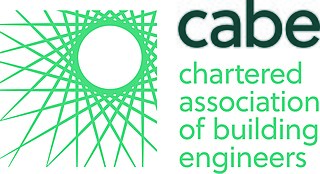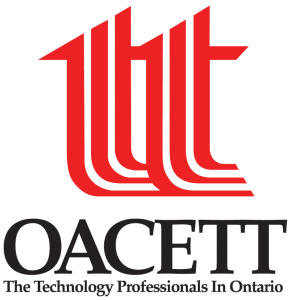Related Research Articles
Regulation and licensure in engineering is established by various jurisdictions of the world to encourage life, public welfare, safety, well-being, then environment and other interests of the general public and to define the licensure process through which an engineer becomes licensed to practice engineering and to provide professional services and products to the public.

The City and Guilds of London Institute is an educational organisation in the United Kingdom. Founded on 11 November 1878 by the City of London and 16 livery companies to develop a national system of technical education, the institute has been operating under royal charter, granted by Queen Victoria, since 1900. The Prince of Wales, later King Edward VII, was appointed the first president of the institute.
The Science Council is a UK organisation that was established by Royal Charter in 2003. The principal activity of The Science Council is the promotion of the advancement and dissemination of knowledge of and education in science pure and applied, for the public benefit. The Science Council is the Competent Authority with respect to the European Union directive 2005/36/EC. It is a membership organisation for learned and professional bodies across science and its applications and works with them to represent this sector to government and others. Together, the member organisations represent over 350,000 scientists. The Science Council provides a forum for discussion and exchange of views and works to foster collaboration between member organisations and the wider science, technology, engineering, mathematics and medical communities to enable inter-disciplinary contributions to science policy and the application of science.

An engineering technologist is a professional trained in certain aspects of development and implementation of a respective area of technology. An education in engineering technology concentrates more on application and less on theory than does an engineering education. Engineering technologists often assist engineers; but after years of experience, they can also become engineers. Like engineers, areas where engineering technologists can work include product design, fabrication, and testing. Engineering technologists sometimes rise to senior management positions in industry or become entrepreneurs.

The Institution of Engineering and Technology (IET) is a multidisciplinary professional engineering institution. The IET was formed in 2006 from two separate institutions: the Institution of Electrical Engineers (IEE), dating back to 1871, and the Institution of Incorporated Engineers (IIE) dating back to 1884. Its worldwide membership is currently in excess of 158,000 in 153 countries. The IET's main offices are in Savoy Place in London, England, and at Michael Faraday House in Stevenage, England.
The Engineering Council is the UK's regulatory authority for registration of Chartered and Incorporated engineers and engineering technician. The Engineering Council holds the national registers of over 228,000 Engineering Technicians (EngTech), Incorporated Engineers (IEng), Chartered Engineers (CEng) and Information and Communications Technology Technicians (ICTTech). The Engineering Council is also responsible for establishing and upholding globally acknowledged benchmarks of professional competence and ethical conduct, which govern the award and retention of these titles. This guarantees that employers, government bodies, and the broader society, both within the UK and abroad, can place their trust in the expertise, experience, and dedication of engineers and technicians who are professionally registered with the Engineering Council.
The architectural technologist, also known as a building technologist, provides technical building design services and is trained in architectural technology, building technical design and construction.
Chartered Chemist (CChem) is a chartered status awarded by the Royal Society of Chemistry (RSC) in the United Kingdom, the Royal Australian Chemical Institute (RACI) in Australia, by the Ministry of Education in Italy, the Institute of Chemistry Ceylon (IChemC), Sri Lanka, and the Institute of Chartered Chemists of Nigeria in Nigeria.

Prospect is a United Kingdom trade union which represents engineers, managers, scientists and other specialists in both the public and private sectors.

The Institute of Marine Engineering, Science and Technology (IMarEST) is the international membership body and learned society for marine professionals operating in the spheres of marine engineering, science, or technology. It has registered charity status in the UK. It has a worldwide membership of over 12,000 individuals based in over 128 countries. The Institute is a member of the UK Science Council and a licensed body of the Engineering Council UK.

Engineering education is the activity of teaching knowledge and principles to the professional practice of engineering. It includes an initial education, and any advanced education and specializations that follow. Engineering education is typically accompanied by additional postgraduate examinations and supervised training as the requirements for a professional engineering license. The length of education, and training to qualify as a basic professional engineer, is typically five years, with 15–20 years for an engineer who takes responsibility for major projects.

The Chartered Institution of Building Services Engineers is an international professional engineering association based in London, England that represents building services engineers. It is a full member of the Construction Industry Council, and is consulted by government on matters relating to construction, engineering and sustainability. It is also licensed by the Engineering Council to assess candidates for inclusion on its Register of Professional Engineers.

The Institution of Chemical Engineers (IChemE) is a global professional engineering institution with 30,000 members in 114 countries. It was founded in 1922 and awarded a Royal Charter in 1957.

Chartered Association of Building Engineers (CABE) is a professional body for building engineers in the United Kingdom and overseas.

The Ontario Association of Certified Engineering Technicians and Technologists, or OACETT, is a not-for-profit, self-governing organization in Ontario, Canada. It is a professional association that promotes the interests of engineering and applied science technicians and technologists to industry, educational institutions, government and with the public. It currently has 24,000+ members.
In the United Kingdom, a Chartered Engineer (CEng) is an engineer registered with the UK's regulatory body for the engineering profession, the Engineering Council. Chartered Engineers are master's degree qualified or must demonstrate equivalent masters level, work-based learning. The appropriate professional competencies must be demonstrated through education, further training and work experience. Significant experience is required which invariably spans several years of postgraduate professional practice. Demonstration of competence is defined in the UK Standard for Professional Engineering Competence, assessed through professional review of academic qualifications and professional development. Formal, non-formal and informal learning can be assessed. The title Chartered Engineer is protected in the UK under law by means of the Engineering Council’s Royal Charter and Bye-laws. As of 2019 there are approximately 180,000 engineers registered as a Chartered Engineer. Chartered Engineers are registered through Professional Engineering Institutions (PEIs) licensed by the Engineering Council which are relevant to their industry or specialism. The total process of formation of a Chartered Engineer including MEng typically spans at least 8-10 years, although 12+ years is not uncommon to satisfy all of the competency requirements.
Chartered Physicist (CPhys) is a chartered status and a professional qualification for physicists awarded by the Institute of Physics. It is denoted by the postnominals "CPhys".
The Institute of Highway Engineers (IHE), formerly the Institute of Highway Incorporated Engineers, is the professional institution for practitioners in highway and traffic engineering in the UK, offering Engineering Council registration and professional development support.
Registered Science Technician (RSciTech) is a professional qualification in the United Kingdom for science technicians. It was introduced in 2011 alongside Registered Scientist as an extension to the UK Science Council's existing professional register for Chartered Scientists. the Registered Science Technician (RSciTech) was developed with the support of the Gatsby Charitable Foundation, with the aim of increasing the professionalism and recognition of those working in technical roles in science. Holders of this qualification can use the post-nominal letters RSciTech. Registration as RSciTech has been encouraged by institutions such as Imperial College London, and the UK Government's Science manufacturing technician and Laboratory technician apprenticeship standards are designed to lead to registration as an RSciTech.
The Royal Institute of Navigation (RIN) is a learned society and a professional body for navigation. The RIN was founded in 1947 as a forum for mariners, pilots, engineers and academics to compare their experiences and exchange information. Today it is a leading centre for promoting knowledge in navigation and its associated sciences, including positioning, timing, tracking and conduct of a journey, whether on, in, over or under land, sea, air or space. The institute has members in over 50 countries worldwide.
References
- 1 2 3 Careersmart: RegTech - Raising the status of Technicians
- 1 2 Prospect signs charter to boost engineering skills Prospect, 10 March 2015
- ↑ TSSA and Prospect sign technicians charter as new skills report launched Unionlearn, 12 March 2015
- 1 2 Careersmart: How do I register for technician status?
- ↑ Careersmart: Continuing Professional Development (CPD) for Technicians
- ↑ Careersmart: Prospect programme includes
- ↑ Gatsby: Education home page
- ↑ Gatsby: Professional registration for technicians